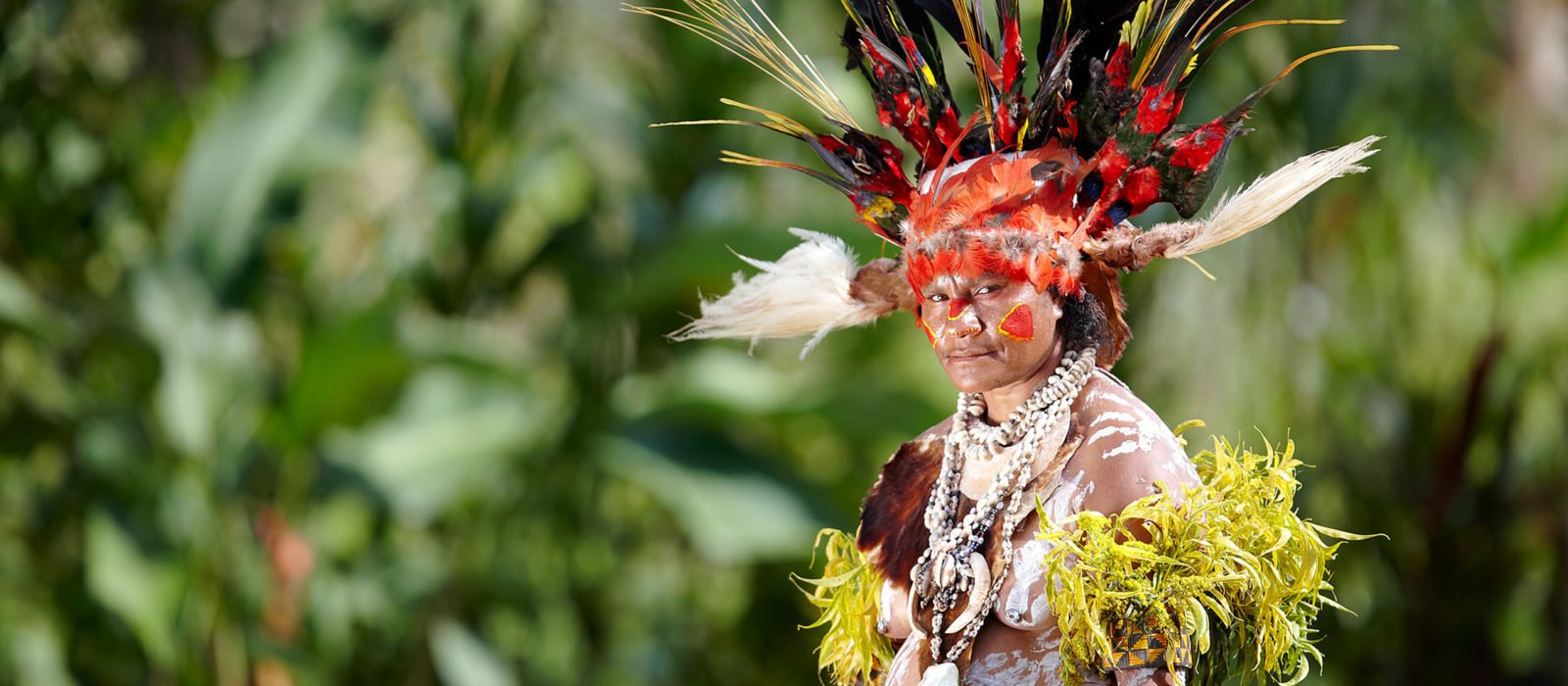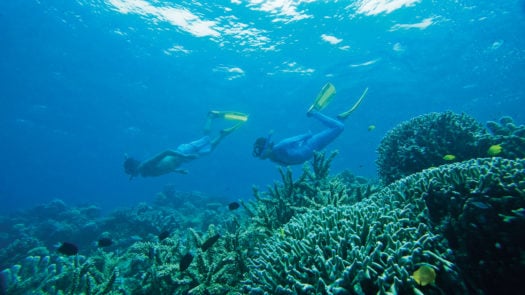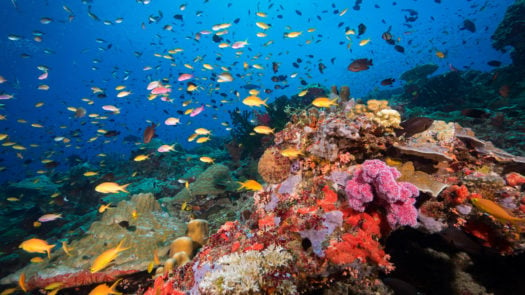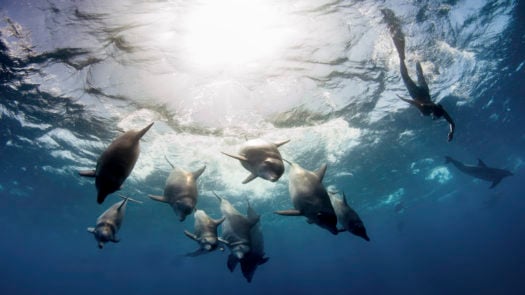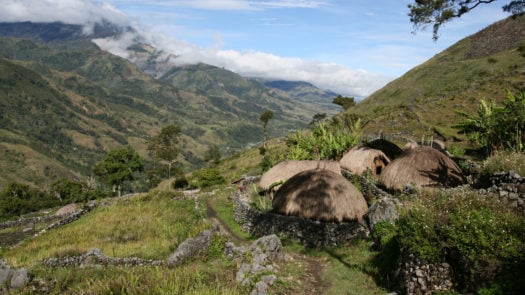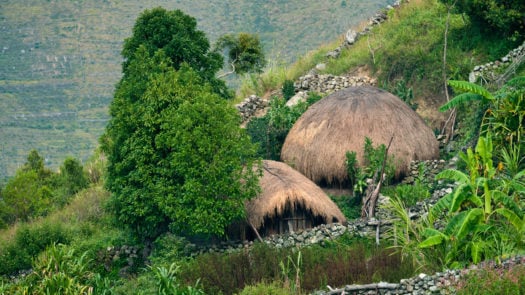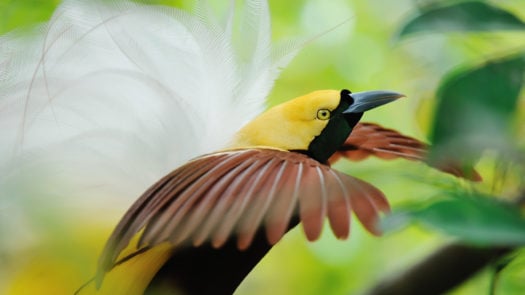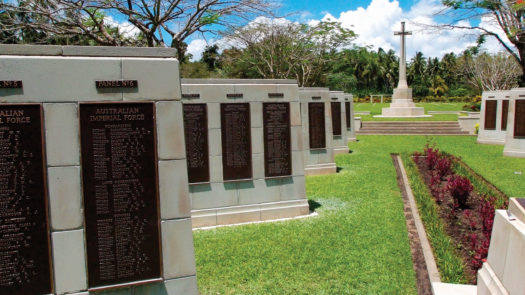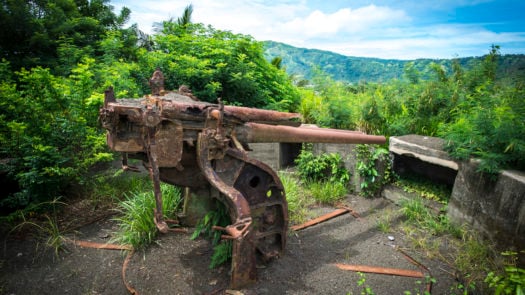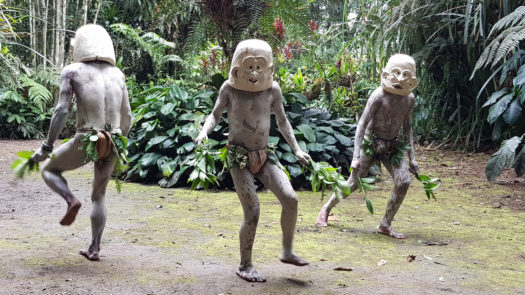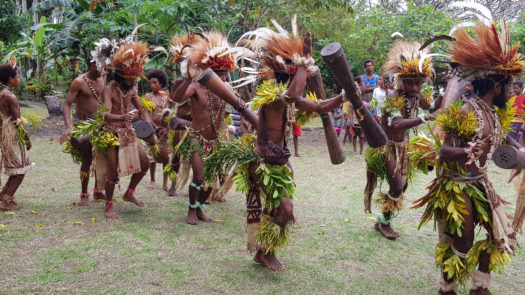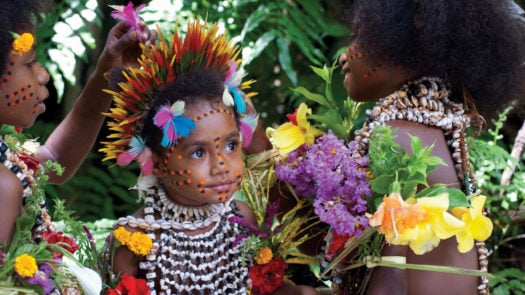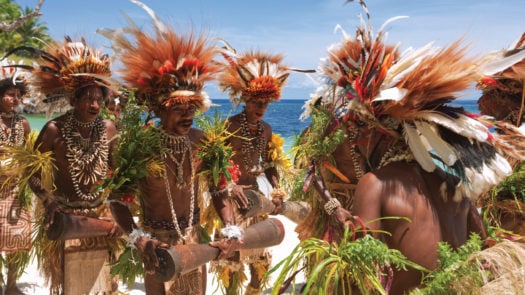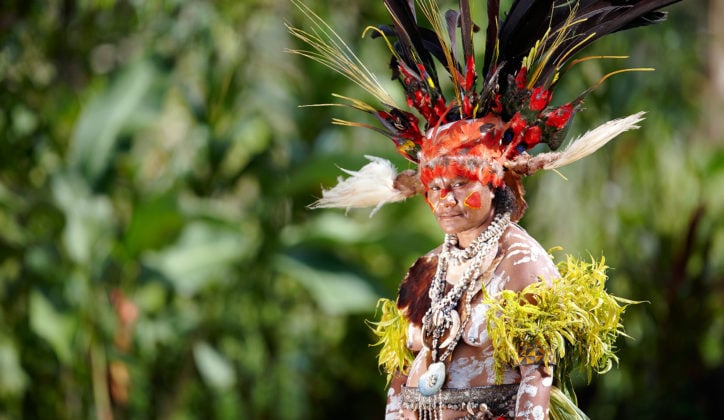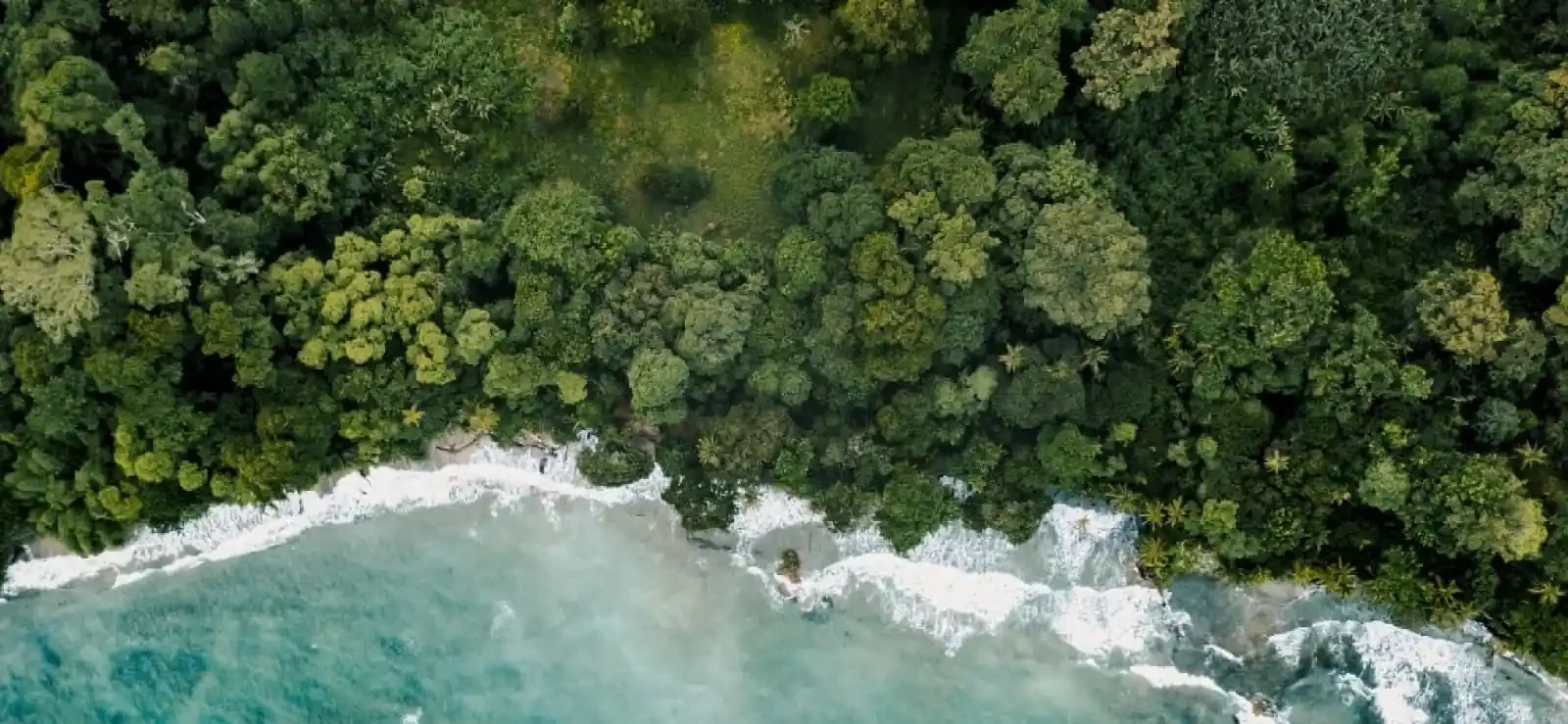Published on: November 22nd, 2018
Last updated: July 28th, 2023
Papua New Guinea is still a relatively undiscovered island but it’s definitely one worth exploring.
Home to incredible history, fascinating culture and dramatic landscapes, there are many ways to get under the skin of this far-away land.
From world-class diving off the northern coastline to attending mesmerising cultural festivals, here is our expert guide on the top things to do in Papua New Guinea.
1) Dive in deep blue waters
Papua New Guinea is an incredible island surrounded on all sides by extraordinary waters. Along the country’s northern coastline, the serene waters surrounding Tufi are teeming with marine life. The idyllic Tufi Resort has a house reef just five minutes from the property, while an open water reef is a fifteen-minute boat ride away. A wide variety of marine life can be seen here, including tuna, barracuda, white and black tip sharks and hammerheads. Lucky snorkelers may even spot turtles, manta and eagle rays – a sight that is sure to be remembered! Beyond diving, Tufi is the perfect place to kick back and relax after a long day of adventuring.
The town of Tufi lies on the slopes of extinct volcano Mt. Trafalgar, whose previous eruptions have created a network of crystal clear fjords. At the end of one of the shorter fjords lies the stunning Boulders Waterfall. On their way to the cooling waters, travellers can get wonderfully lost in undulating rainforest. At the waterfall, you can also take a dip in a rock pool surrounded by cascading waters – it’s a truly memorable experience. For more unforgettable underwater adventures visit Don’s Reef fjord, where kaleidoscopic coral transports swimmers to another world.
In addition to its coast, Papua New Guinea’s islands are awash with out of this world diving opportunities. A short journey out into the water from Kabakon Island leads divers to bottlenose dolphin territory. When they return from feeding offshore, these wonderful mammals find sanctuary in Blanche Bay. Around two hundred bottlenose dolphins regularly play with the oscillating waves of boats, and swimming with them is a phenomenal experience. Diving enthusiasts with a penchant for history should also check out the derelict submarines and aircrafts on the ocean floor that are remnants of the WWII era.
2) Hiking in The Highlands
Papua New Guinea’s highland interior is one of rugged mountain peaks and hillsides blanketed in lush forests. In this nature’s paradise, hiking trails wind through verdant landscape and soaring peaks pierce through tropical skies. In lots of highland villages life has changed little for centuries, so hikers can get a fascinating glimpse into local life while walking. The country’s craggy interior is a mountaineer’s playground.
Many of the jagged peaks are taller than 13,000 feet and the highest point of Mount Wilhelm rewards determined hikers with extraordinary views across the country. Trekking lovers can continue the fun of exploring in the imposing Bainings Mountains, where overgrown rainforest and impressive volcanoes combine to create a striking landscape.
3) Get acquainted with birds of paradise
The verdant forests covering the highlands are home to a breathtaking array of birdlife. Infamous birds of paradise glide through the air alongside the crested berrypecker and black breasted boatbill. To spot these magnificent birds, , you can join an excursion departing from Kumul Lodge, located 3000 metres above sea level. This modest, locally-run lodge has a bird feeder that constantly attracts the ribbon tailed astrapia and brown sicklebill birds of paradise, as well as multi coloured parrots, ethereal bowerbirds and dainty honeyeaters.
4) Discover history in Rabaul
Parts of Papua New Guinea’s islands tell the largely untold tale of the country’s role in WWII. This Australasian island has witnessed many conflicts: German colonialism and Australian colonialism as well as Australian and Japanese intervention during the WWII era. The remnants of these battles can still be explored. On Rabaul, travellers can visit Admiral Yamamoto’s bunker and learn of a bygone era, when Japan based their war efforts in the region.
After the Japanese invaded, the Allies constantly sought to overthrow them, so Japanese soldiers stayed in underground tunnels to protect themselves from constant bombardment. Today, travellers can visit these tunnels to get a glimpse of how over 100,000 Japanese soldiers lived all those years ago. Wandering through tunnels that were large enough to house barges, aircrafts and hospitals is sure to excite history buffs, as well as every other type of traveller.
5) Enjoy tradition during festival season
Festival season is the most popular time of year in Papua New Guinea, and there are plenty to choose from. Papua New Guinea’s festival season runs from July to September and attracts thousands of international tourists with mesmerising dances and mystical masked warriors. Standouts include the Warwagira & Mask Festival, the Enga Cultural Show and the Goroka Show.
During the Warwagira & Mask Festival, East New Britain Island celebrates the traditional masks used in dance and performance storytelling across the country. Those donning masks are said to adopt their ancestors’ spiritual powers, so many locals are keen to embody ethereal creatures in a variety of performances. The highlight of this festival is the mind-boggling evening performances of Baining fire dancers moving through blazing bonfires.
At the Enga Cultural Show, the province of Enga – undiscovered until the 1930s – shares its culture with everyone willing to watch. This show is still relatively undiscovered by foreign tourists, so it’s a good option for those looking to avoid the crowds and get a truly authentic feel of the culture. The incredible Sili Mili mud dancers are particularly astonishing, with their black-painted faces and wigs made from human hair – it’s nothing if not incredibly unusual.
The Goroka Show – the country’s longest running annual cultural festival – is a similar celebration. Held every year in September, during Papua New Guinea’s Independence Day celebrations, this show attracts thousands of revellers. Over a hundred tribes take part in this incredible three-day festival, all performing extraordinary traditional ‘singsings’ – a mixture of songs, dances and ritual performances.
Discover the wonders of Papua New Guinea
Feeling inspired? Our expert travel designers are always on hand to help you plan your journey through hidden Papua New Guinea.
